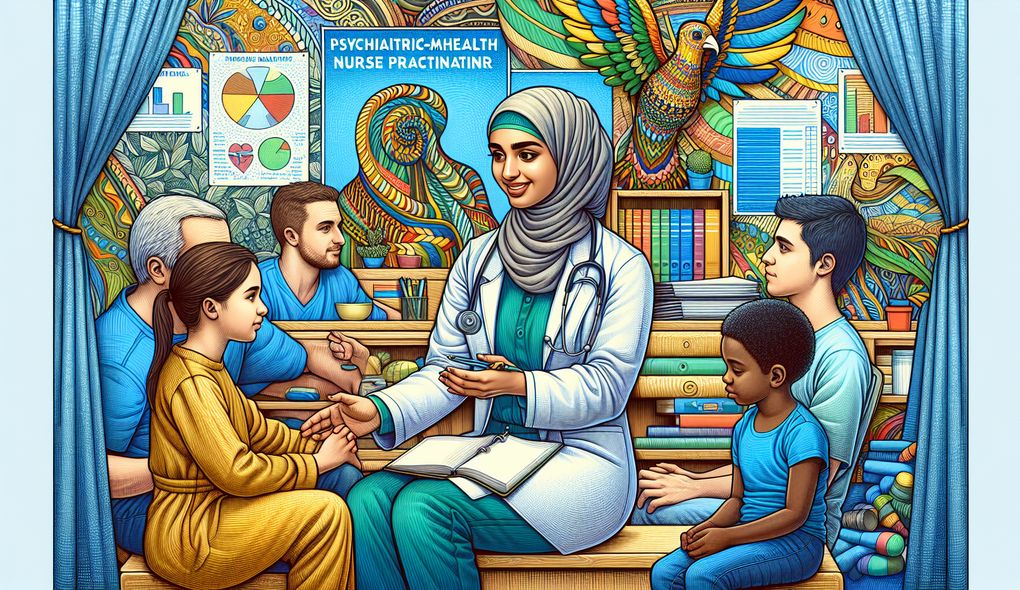How do you ensure ethical practice and maintain patient confidentiality?
JUNIOR LEVEL

Sample answer to the question:
Ethical practice and maintenance of patient confidentiality are of utmost importance in the field of psychiatric-mental health. One way I ensure this is by strictly adhering to professional guidelines and ethical codes set by nursing associations and organizations. I always prioritize obtaining informed consent from patients before disclosing any information. Additionally, I maintain patient confidentiality by securely storing and transmitting patient information, using encrypted electronic health records systems. I am also careful to only share patient information on a need-to-know basis, and I make sure to obtain patient consent before discussing their case with other healthcare professionals involved in their care. Lastly, I regularly participate in training and workshops on ethical practice and patient confidentiality to stay up-to-date on best practices.
Here is a more solid answer:
Ethical practice and maintaining patient confidentiality are critical in my role as a Psychiatric-Mental Health Nurse Practitioner. Firstly, I ensure ethical practice by following the professional guidelines and ethical codes set by nursing associations, such as obtaining informed consent from patients before disclosing any information. Secondly, to maintain patient confidentiality, I strictly adhere to secure storing and transmitting of patient information using encrypted electronic health records systems. I am also meticulous about sharing patient information only on a need-to-know basis and obtaining patient consent before discussing their case with other healthcare professionals. For example, during my previous job, I encountered a situation where a patient's family member contacted me to inquire about their mental health condition. Although I empathized with their concern, I explained the importance of patient confidentiality and redirected them to the patient for any information sharing. Additionally, I prioritize ongoing training and workshops on ethical practice and patient confidentiality to stay updated on best practices.
Why is this a more solid answer?
The solid answer provides specific examples and personal experiences to demonstrate the candidate's understanding and application of ethical practice and patient confidentiality. The candidate discusses following professional guidelines, obtaining informed consent, secure storing of patient information, need-to-know basis sharing, and ongoing training. The answer shows a strong understanding of the principles and includes a relevant example from the candidate's previous experience. However, it could further emphasize the candidate's communication and interpersonal skills in addressing patient and family concerns related to confidentiality.
An example of a exceptional answer:
Ethical practice and maintaining patient confidentiality are fundamental aspects of my role as a Psychiatric-Mental Health Nurse Practitioner. To ensure ethical practice, I integrate principles like autonomy, beneficence, and non-maleficence into my care. For example, I collaborate with patients in creating care plans, empowering them to make informed decisions about their treatment. I also engage in shared decision-making by discussing treatment options, potential risks, and benefits in a clear and understandable manner. When it comes to confidentiality, I go beyond the basic requirements. I establish trust with patients by emphasizing the importance of privacy and assuring them that their information will be treated with utmost confidentiality. I make it a point to have open and honest conversations with patients about their rights and the limitations of confidentiality, ensuring they are well-informed. Additionally, I regularly undergo additional training on data security and privacy regulations to stay updated. In one instance, I encountered a situation where a patient expressed concerns about their confidentiality due to fear of stigma. I actively listened to their worries, acknowledged their emotions, and reassured them by explaining the measures in place to protect their information. By empowering patients, fostering trust, and continuously educating myself, I am committed to upholding ethical practice and patient confidentiality.
Why is this an exceptional answer?
The exceptional answer demonstrates a deep understanding and application of ethical practice and patient confidentiality. The candidate includes principles like autonomy, beneficence, and non-maleficence in their care, and emphasizes shared decision-making and open communication. They go beyond the basic requirements by actively establishing trust with patients, engaging in honest conversations, and addressing patient concerns about confidentiality and stigma. The candidate also highlights their commitment to ongoing education and training on data security and privacy regulations. The answer showcases the candidate's exemplary approach to ethical practice and maintaining patient confidentiality. There are no areas for improvement in the exceptional answer.
How to prepare for this question:
- Familiarize yourself with the professional guidelines and ethical codes set by nursing associations, as they provide important frameworks for ethical practice.
- Review the principles of autonomy, beneficence, and non-maleficence in relation to patient care and decision-making.
- Ensure you are knowledgeable about data security and privacy regulations, as they are crucial for maintaining patient confidentiality in electronic health records systems.
- Practice scenarios where you have to explain and address patient concerns about confidentiality and stigma, emphasizing open communication and reassurance.
- Stay updated on current best practices in ethical practice and patient confidentiality through ongoing training and workshops.
What are interviewers evaluating with this question?
- Ethical Practice
- Patient Confidentiality
- Knowledge of Professional Guidelines
- Use of Electronic Health Records
- Communication and Interpersonal Skills

